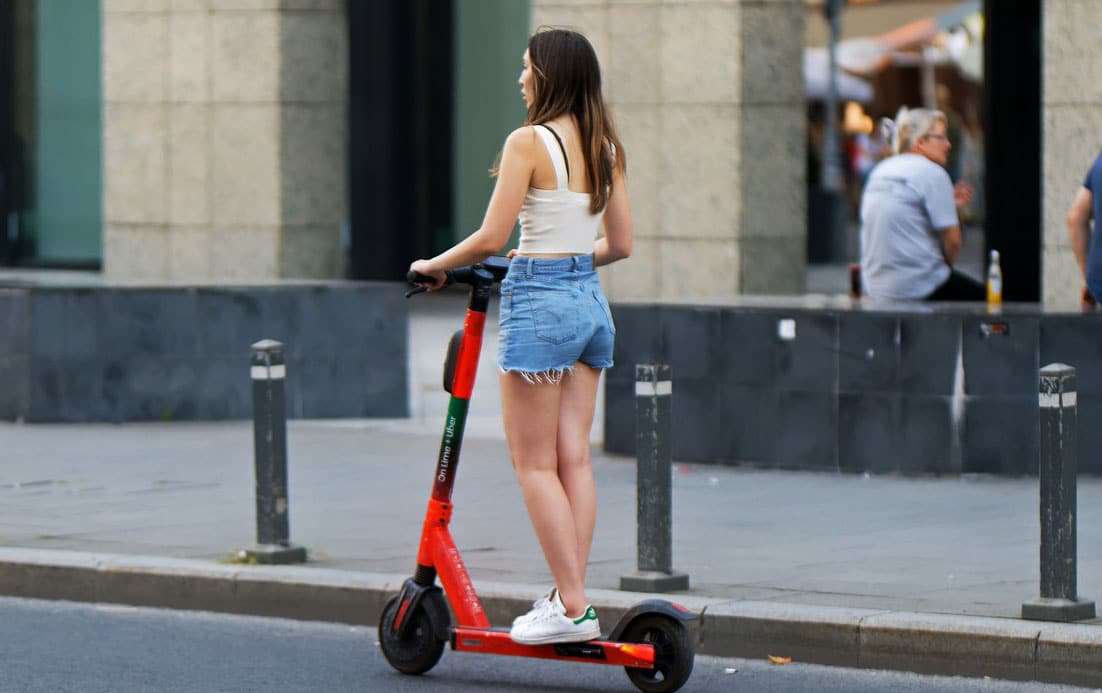The debate over tighter regulations for electric scooters has intensified after new data revealed a significant number of violations and accidents involving the popular personal mobility devices.
At a meeting of the House transport committee, a police spokesman reported that in 2023 alone, authorities received over 1,500 complaints regarding breaches of scooter-related legislation. Between 2021 and 2023, 0.9 per cent of all recorded injuries involved scooter users.
The committee discussed the possibility of requiring scooters to be registered to ensure insurance coverage in the event of accidents. The executive branch has been given three months to present a proposal on this issue.
The discussion followed a proposal from Green Party MP Stavros Papadouris, advocating for new legislative measures to curb violations of the road traffic code. However, government officials highlighted the challenge of registering scooters, as they do not legally fall under the category of motor vehicles.
Papadouris argued that scooter registration is necessary to facilitate insurance coverage and accountability in accidents.
“The situation is out of control. It is difficult for the police and local authorities to enforce the law, resulting in frequent accidents, some of them serious,” he said.
He further noted that in cases of accidents involving pedestrians or scooter drivers, victims are left to cover the costs, as scooter users are not insured.
Another issue raised was the anonymity of scooter users. As these devices lack identification markings, tracing violators after an accident or traffic offence remains a challenge.
Committee Chairman Marinos Mousiouttas stressed that enforcement remains weak. He pointed out that scooters are frequently ridden on pavements and roads with speed limits exceeding 30km/h, both of which are prohibited. He warned that if authorities fail to act, he will move to annul the existing legislation.
Akel MP Costas Costa echoed these concerns, stating, “The legislation is not even being implemented.” He argued that in addition to enforcement, authorities must designate specific areas where scooters can be legally operated. Fellow Akel MP Valentinos Fakondis added that while promoting micromobility is important, safety regulations must protect both scooter users and the public.
Assistant director of the traffic department, Charis Evripidou, confirmed that enforcement is ongoing, with over 1,500 complaints in 2023, including 630 cases of scooters operating outside designated areas. Other violations included failure to wear helmets and reflective gear.
He noted that a fatal scooter accident occurred in Limassol in 2022 before the current legislation took effect. However, no such deaths were recorded in 2023 or 2024.
The ministry of transport maintained that registering scooters in the same manner as cars would impose disproportionate costs. Nevertheless, they remain open to discussions. A ministry spokesperson noted that an awareness campaign on scooter laws had been conducted and would be repeated.
Representatives from the department of public works and the department of road transport pointed out that no other country has implemented scooter registration. They emphasised that international best practices should guide local regulations.
Insurance concerns were also discussed. General manager of the Cyprus insurance companies association (Saek), Andreas Athanasiades, explained that for scooters to be insured, they must first be officially registered. He stressed the need for a well-structured system to support insurance policies for these devices.
Representing the union of municipalities and communities, Sotiria Kokkinou, called for a registration process to track scooter users and ensure adherence to safety standards. She highlighted difficulties in enforcement due to understaffed local authorities.
Business groups expressed mixed views. While the Cyprus chamber of commerce and industry (CCCI) supported legislative measures, the employers and industrialists federation (OEB) opposed registration, arguing that rental scooters can already be tracked through company records. They also noted that infrastructure improvements are needed to promote micromobility safely.
Discussions also touched on lessons from abroad. Some countries restrict scooter rentals to designated areas and impose penalties for improper parking. Evripidou noted that existing laws already allow municipalities to enforce licensing conditions on rental companies.
Moving forward, the police plan to work with municipalities to improve licensing enforcement and encourage the establishment of 30km/h zones. A subsidy programme for these zones is also set to be announced.






Click here to change your cookie preferences